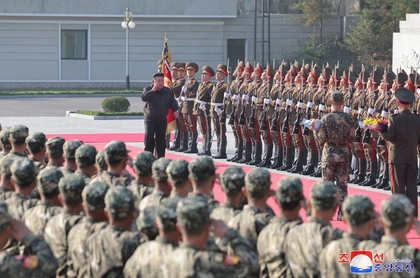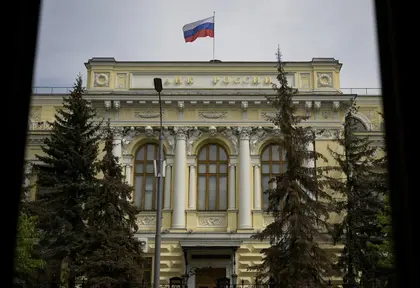According to different estimates there are up to $500 billion worth of Russian assets frozen globally. Among them – luxury real estate, yachts, cars, corporate rights and Russian Central Bank reserves. Many countries are now searching for ways that will allow transfer of these assets to Ukraine.
This month the KleptoCapture Taskforce, a U.S.-based group working on tracing and freezing of Russian assets, announced a planned confiscation of such assets within the following months to help Ukraine. A legal solution on how to use the frozen assets of the Russian Central Bank is also being finalized in the EU.
JOIN US ON TELEGRAM
Follow our coverage of the war on the @Kyivpost_official.
The full-scale war that has been going on for almost a year, demands quick solutions not only from our international partners and allies. It initially pushes us to initiate and implement effective changes to help our country. Huge military and social costs as well as multi-billion-dollar damages have been caused by Russian aggression to our infrastructure, cities and villages.
This is why we in Ukraine have developed a model that will allow the conversion of sanctioned and seized assets into money (budget revenues). Part of these assets (under arrest in criminal cases) are now in the Ukrainian Asset Recovery and Management Agency (ARMA). At the end of December 2022 my colleagues from parliament and I have registered a draft law (№8311), that has already passed the Economic Development Committee and is waiting to be voted on.

North Korea UN Representative Denies Pyongyang Sent Troops to Russia
New type of sanction
What are the changes proposed? Primarily they are aimed at upgrading existing procedures of sanctioned assets management. They cover the assets that have not yet been turned into property of the state but have been confiscated, controlled and/or managed by the state.
Currently a procedure of turning sanctioned assets into state property is working under the Law passed by Rada (Parliament of Ukraine) at the beginning of Russian aggression in spring of 2022. This procedure is led by powerful efforts of the Ukraine’s Justice Ministry as well as the legal mechanism of seizing and nationalizing sovereign Russian assets in Ukraine. In short, sanctioned assets of people who are supporting or enabling Russian aggression in Ukraine are becoming state property of Ukraine.
For over 30 years of independence we have proven to ourselves that the state is far from being an efficient asset manager. That is why for five years Ukraine has been building and constantly upgrading its policy in the sphere of privatization and public asset management through transparent, open and competitive online auctions, in which different kinds of assets are sold and leased. This reform has already resulted in over Hr.70 billion of budget revenues by providing equal digital access to a variety of assets for interested investors and businesses. When considering possible ways of using the assets of Russian oligarchs mostly consisting of numerous hotels, villas, yachts, luxury cars and private jets – it’s obvious that there is little use of them either on the battlefield or in any humanitarian capacity. Nevertheless, the state has to utilize them in the best possible way for victory.
Our goal is to create the shortest possible route for transferring those assets to new owners. The way to do it is to create a new sanction – the enforced sale. Instead of transferring sanctioned assets to state property we are creating a mechanism that almost instantly turns such assets into budget funds, required to cover war losses, to support the army, or to finance humanitarian needs. The legal route for an immediate sale of a sanctioned asset will be contingent on the respective High Anti-Corruption Court of Ukraine (HACC) decision. the Justice Ministry will be responsible for filing of such cases and representing the state in respective court hearings.
Transparent sales of sanctioned and seized assets
The sales process of sanctioned assets has to be fully transparent and open. War period demands elimination of all obstacles and inefficiencies.
That is why the draft law, prepared under my lead offers to transfer all sales of such assets to a state-owned electronic auction platform Prozorro.Sale (NB: There are two different projects often mixed up because of a common word and principles. Prozorro – the state procurement platform to save budget costs; and Prozorro.Sale – the state online-auction system, generating budget revenues). Today, this award-winning platform (UN Public Service Award) is a best practice for a variety of markets in Ukraine: privatization, special mining licenses, non-performing loans of failed banks, lease of state, communal property and land.
Apart from public online auctioning and its transparent results we have to make sure that all information about assets managed by ARMA is properly disclosed. It is vital when you build trust with society and international partners, knowing that sanctioned assets are managed properly and public register of such assets will surely have a great positive effect. This is an important provision of my team’s draft law. Moreover, the European Commission is expecting efficient management of assets under ARMA, which was stated in a December 2022 report.
Despite the full-scale war started by Russia almost a year ago, our fight for freedom and independence continues; and it will lead us to full victory, resulting in a return of all occupied lands and Ukrainian cities. It’s crucial that Ukrainian military might be fully supported by an efficient Ukrainian economy. That is why the legal initiative and proposed changes are aimed at mobilizing the economic front. Efficient asset management instruments will help boost GDP growth, increase budget revenues, finance the army and social needs of Ukraine and diminish the shadow sector of economy.
Disclaimer:
Oleksiy Movchan is Deputy Chair of Economic Development Committee and a Member of Ukrainian Parliament (Servant of the People Party)
The views expressed in this article are the author’s and not necessarily those of Kyiv Post.
You can also highlight the text and press Ctrl + Enter






